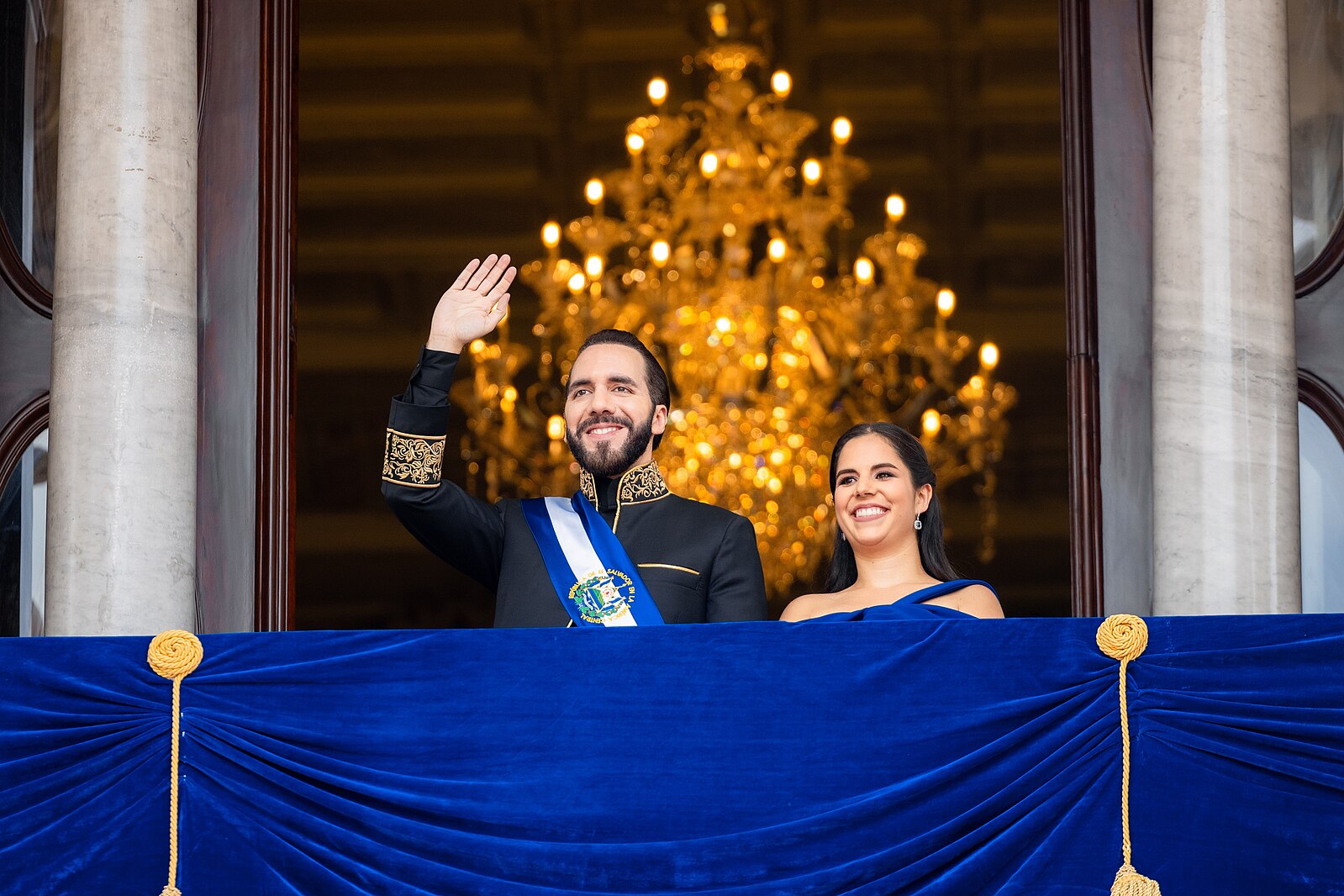Bukele’s mano dura approach has proven successful and is now being exported to other Latin American countries
Until recently, most of El Salvador’s crime-ridden rural areas were effectively a no-go zone. Ruled by rival gangs, the simple act of travelling from one town to another often meant complying with the arbitrary demands and extortions of criminals.
When President Nayib Bukele took office in 2019 however, he implemented a crackdown on violence, arresting gang members without trial. This has transformed Salvadorian society. Once referred to as the murder capital of the world, El Salvador now ranks as the second-safest country in Latin America, with homicide rates at historic lows. Bukele’s measures have transformed a country crippled by violence.
“Now, you can walk freely with all the calm in the world”, says Carmen Valeria, a Salvadorian journalist, who recalls how just visiting certain parts of the capital would mean putting your life at risk. “In the last few years, Salvadorians have been able to access the streets they never could before.”

The calm which now reigns across El Salvador is the direct result of a state of emergency declared in response to the massacre of 87 people between 25 and 27 March 2022. Many people in rural communities have complained of family members being arrested, but they are also glad that the violence has abated.
The declaration of the state of emergency resulted in 75,000 arrests. Of those arrested, 12,114 were sent to the new Tecoluca mega prison, which is built to hold 40,000 people. Reports from the organisation Cristosal have emerged that allege severe overcrowding and numerous human rights violations, including instances of torture and inhumane treatment.

When Salvadorian journalist Jaime Quintanilla traversed hundreds of rural communities, asking locals if they knew anyone who had been unfairly arrested, every person he met said they knew of at least one. All however were glad that there was no more violence. “Even parents of children who were arrested said: ‘Yes, they arrested my son, but at least there are no more gangs in the villages,’” Quintanilla reported.
This has earned Bukele popularity, authority, and the power to change the country’s political structures. His success has prompted other Latin American leaders to adopt a similar model. Governments in Honduras, Ecuador, Guatemala, and Argentina have attempted to replicate what is known as the Salvadorian “mano dura” (“firm hand”) policy.
Popularity aside, some commentators believe El Salvador is on the verge of becoming an authoritarian state. Bukele has shaken up convention by deciding to run for a second term and by altering the legislature and judicial system. In this year’s elections, he received 83 per cent of the votes.
“Bukele is going into his unconstitutional consecutive second term,” explains local journalist Jaime Quintanilla. “But he is already empowered to modify the constitution; he will just mandate it to his legislative assembly, and they will say ‘yes’.”
In addition, the government faces international criticism for human rights violations.
“People support Bukele because they are concerned about security,” continues Quintanilla. “The Salvadorians never imagined that they would be able to walk on safe streets. But they are used to sacrificing rights. People here haven’t really experienced a true democracy.”
“We used to have at least 10 to 15 murders daily. But after all these atrocities, which the majority of the population had to live through, we were suddenly free. We felt as if we were living in a different country, with the ability to visit previously dangerous locations and even reunite with families after years apart.”

While it may satisfy people in the country, the mano dura policy is unpopular among some Salvadorians living abroad, including Aristides Palacios, who has been living in London for several years. In his view, Bukele’s state of emergency unnecessarily restricts people’s political liberty and freedom of speech.
“Going back is not a good idea. Even if the security situation is better, there remain huge problems with social and economic conditions that are not going to be solved any time soon,” he says.
Also working against Bukele is the fact that his anti-gang policy hasn’t proven effective in neighbouring countries, such as Honduras, where President Xiomara Castro’s administration has been adopting the El Salvador approach.
Fernando Silva, a Honduran journalist, says that since Castro took office, the relationship between the two countries has become closer. Bukele’s government has sent advisors to
Castro’s administration, offering guidance on how to emulate their policies.
By contrast with its neighbour, since 2022 Castro’s state of emergency has not produced the same results observed in El Salvador.

The UN recently declared Honduras “one of the most dangerous countries for individuals who defend the environment, indigenous territory, and human rights”. It also expressed concern about the imposed “state of emergency, which has been in place for the last 15 months”.
“Our police force is not structured the same way. The gangs are different, and [law enforcement] organisations are not as strong as they are in El Salvador,” explains Silva.
“There aren’t enough police for territories with a dense population,” he adds. “People in Honduras are anticipating a crackdown on violence. However, no results are forthcoming, and they probably won’t be to the same degree as in El Salvador.Nevertheless, we are witnessing the emergence of a new political authoritarian model.”
Feature image: President Nayib Bukele with his wife. Credits: Casa Presidencial El Salvador

